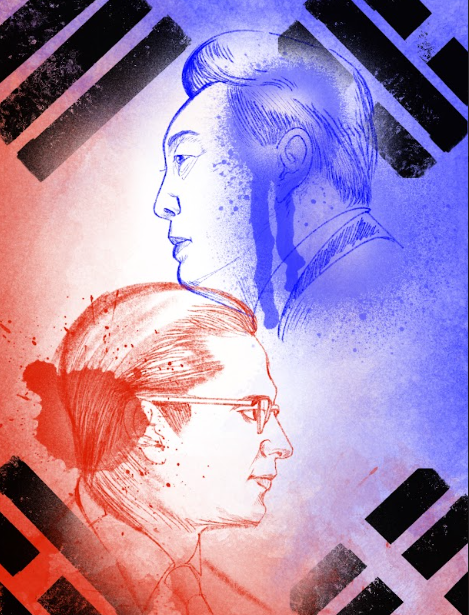Poilievre’s Canada mirrors Yoon’s South Korea
Trickle-down effect cliché and anti-democratic rhetoric will never fix the current problems.
As the leader of Canada’s Conservative Party, Pierre Poilievre has built his political brand on populist rhetoric.
He has supported tax cuts and deregulation while attacking liberal policies as socialist overreach.
So far, Poilievre’s comments have reflected the perspectives of South Korea’s People Power Party (PPP), the right-wing political group of current president Yoon Suk Yeol. This is a dangerous warning sign because Yoon’s controversial stances have sharply polarized South Korean citizens.
President Yoon, a former prosecutor with no legislative experience, has damaged democracy while supporting aggressive tax cuts that undermine economic equality. His authoritarian tendencies peaked when he attempted to declare martial law on Dec. 3, 2024. Ultimately, Yoon and the PPP’s anti-democratic rhetoric and extreme actions opened a path for impeachment.
It is apparent that both Poilievre and Yoon have pushed the same old-fashioned conservative economic plan, like the old right-wing trickle-down effect cliché. They have supported tax cuts for the wealthy, downsized government and made empty promises of economic revitalization.
Poilievre framed Canada’s economic struggles as a result of excessive taxation. Yoon, likewise, repeatedly insisted that ex-president Moon Jae-in significantly increased the government debt and made it difficult for his government to function.
Like Poilievre, Yoon also implied that his tax cut policies would revitalize the economy, stabilize people’s livelihoods and maximize the efficiency of public finance. Yet, despite his promises, the public economic situation in South Korea has only deteriorated during his two-and-a-half years in office.
Yoon’s government failed to control inflation and currency fluctuations, leading to South Korea’s economic growth rate plummeting from 2.7 per cent in 2022 to 1.4 per cent in 2023. Meanwhile, the actual wages of South Korean workers also had a yearly decrease of 1.36 per cent during the same period for the first time in 12 years, according to Statistics Korea.
The Yoon government’s corporate, income, comprehensive real estate, inheritance and gift tax cut policies reduced tax revenue by C$55.9 billion in 2023 and C$30.5 billion in 2024, based on the South Korean Ministry of Economy and Finance tax revenue and budget expenditure data.
As a result, Yoon’s government cut C$13.2 billion of the livelihood budget, including the funding for low-income rental housing and free high school education in the 2025 budget plan, according to the Fiscal Reform Institute.
I was deeply concerned that Poilievre’s McCarthyistic ideas are simply aimed at blurring key issues and maximizing division among voters. During his lengthy interview with psychologist Jordan Peterson on Jan. 2, Poilievre insisted, “The socialist policies redistribute from the working class to the super-wealthy.”
As a result of the right wing’s instigation, South Koreans are still suffering from the aftermath of political polarization. In Seoul, for instance, a riot led by the extreme right broke out on Jan. 19, targeting journalists and the court right after Yoon’s arrest on the charge of being a leader of an insurrection.
I strongly believe the situation in South Korea demonstrates how long-term political polarization can turn extreme voters violent and could result in the collapse of the democratic system in an instant.
It is not only the older generation that stays traditionally conservative, but also young Korean men—millennials and Gen Z.
In comparison to South Korea, Poilievre’s framing against the Liberal and New Democratic parties and their voters may encourage far-right groups to violate the constitution and rights of other Canadians. Poilievre, like Yoon, has aimed to infuse hatred in a younger generation facing economic and social deprivation to serve his political interests.
The instigations of these “conservative” politicians—who are actually authoritarian populists, in my opinion—will never solve economic issues or make society safe, as South Korea’s case has proved.
Canadians must take note of the warning signs before it’s too late.
This article originally appeared in Volume 45, Issue 11, published March 18, 2025.







